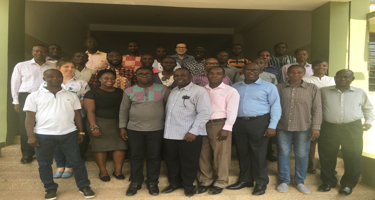
SMEs and micro-businesses are notoriously difficult to reach or influence at scale in any industry. Recent research in the timber industry however revealed that even a limited number of industry associations have the potential to reach thousands of micro-businesses. It showed that twenty-five associations in eight African countries represent over 13,000 companies, with 80% defined as micro-sized. A typical micro-business may cover a wide range of activities from small logging companies to skilled production companies, such as joinery and furniture. Many of these usually serve the local market and as such are not exposed to international market drivers.
The associations that serve the micro-businesses are facing many challenges in their day-to-day operations. Through 2017 to 2019 Global Timber Forum (GTF) conducted in-depth interviews with ninety-nine associations in thirty-eight countries. This research programme aimed to understand the specific challenges they face. Utilising these new insights GTF developed a tailored capacity-building programme for associations, named the Association Training Framework (ATF). One of the learnings from the research was that before these associations can support their members on issues of responsible trade, they need to build their own capacity and capability.
An initial consultation on the ATF took place at GTF’s West and Central Africa Summit in June 2018 held in Libreville, Gabon. The feedback was then used to adapt the ATF before the pilots were undertaken in December 2018 in both Ghana and Cameroon.
Thirty-six trainees from eleven associations joined the pilots in Ghana and Cameroon. They each faced a range of shared challenges, from effective engagement with stakeholders in their external environment through to involving and supporting their members. The training was delivered in an open environment to allow them to talk freely about their experiences. The trainees were taken through practical exercises using tools that they could then take away and utilise for both their association and their own businesses.
Classroom learning and practical exercises were supplemented with mentoring to provide one-to-one direct support. A peer-to-peer learning facility further enables associations from all key markets to engage with each other about common experiences and how they have overcome shared challenges. GTF facilitates this activity through a network of over one hundred associations around the world who have indicated their desire to improve their knowledge and share information. The ATF has been designed to be adapted to individual association needs, as well as national circumstances.
The training also builds the associations capability to provide technical services to their members on issues of legality and sustainability, a clear request highlighted by associations in the recent ASK research. This is particularly vital in FLEGT countries where the association can then provide better representation to inform the national process as well as an access route for stakeholders to reach a significant part of the industry where the process may be more remote.
As GTF seeks to roll out the programme further it would welcome any national expressions of interest or experience that other organisations have encountered in similar circumstances. For further information email info@gtf-info.com or visit gtf-info.com.
